Hemp protein is one of the nutritious plant-based protein powder. Hemp protein is a complete protein that carries heart-healthy unsaturated fats, antioxidants, minerals, fiber.
It’s a great choice, particularly for vegans, but possibly less nutritious than few other plant-based proteins such as soy protein.
It’s a popular alternative to whey protein, especially if you are a vegan or vegetarian.
However, plant protein is often regarded with caution because it is harder for human bodies to digest compared to animal-based protein.
One of the exceptions is the hemp protein supplement.
Studies have shown that hemp is up to 98% digestible for humans.
If you’re looking for a reliable hemp protein powder, I’ve reviewed in this guide six of the most viable options below.
Review Summary:
- 1. Sunfood Raw Organic
- 2. Nutiva Organic
- 3. Wilderness Poets
- 4. Bob’s Red Mill
- 5. Manitoba Harvest
- 6. ONNIT Powerfood Active
Table of Contents
7 Top Hemp Protein Powders (List for 2024)
The only thing you should look out for when purchasing the best hemp protein powder is if its’ clean. Generally speaking, you should make sure your protein powder is as pure as possible with little to no additives.
It’s no secret that these protein supplements are highly nutritious and a good way of extra protein for anyone who wants to practice healthy living. Here are six of the best brands in the market today:
1. Sunfood Raw – Best Tasting Organic Hemp Protein Powder
Sunfood Superfoods is a popular choice if you’re looking for a raw, unadulterated version of hemp seed protein powder. This unflavored formula on its own is smooth and blends well with other beverages.
Moreover, it is also certified raw, organic, non-GMO, and vegan protein powder, which is ideal if you are looking for something to add a boost of fiber and protein to your diet; and the balanced amino acid profile provides an excellent boost for athletes.
Here’s why you’ll like it:
Carefully Manufactured – what makes this product unique is that it is gently cold-pressed to ensure that it retains maximum digestibility. Moreover, Sunfood also guarantees that the hemp seed used in production has not been damaged by heat. Furthermore, it is simply raw and pure organic hemp pro protein powder without any additives.
- Mixes well
- Highly versatile
- Rich in nutrients
- Gluten-free
- Vegan protein powder
- Organic
- Boost athletic performance
- It is a bit expensive
Summary: Because of the process this Sunfood Superfoods underwent, it retains its natural flavour and completely great mixability. That’s also highly versatile and can be used on a variety of dishes and drinks alike. However, it does tend to be more expensive. But you are paying for top high-quality cold-pressed hemp powder.
.
2. Nutiva – Good For Weight Loss
Nutiva Organic is a popular choice for people who are trying to lose weight. Why? It’s rich in protein: it contains 15 grams of protein per serving and only 90 calories. It’s rich in fiber: it contains 8 grams / per serv. At the same time, it contains 2.5 grams of Omegas 3 and 6, which is excellent for your overall health. It helps you maintain optimal muscle strength and tone but also helps shorten recovery time after strenuous workouts.
Here’s what makes it unique:
Jam-packed With Micronutrients – Nutiva contains all 20 essential amino acids that your body needs to remain healthy. It also contains a healthy dose of fatty acids per serv. Moreover, it contains naturally 66% of edestin, which is a bioactive globulin protein that is easy for your body to digest. Because of this, you’ll experience a clean boost in energy with every dose. It is the #1 choice for a low-carb or keto diet.
- High fiber content per serving
- High protein content per serving
- No additives
- The balanced amino acids
- Great for dealing with digestive issues
- Low-calorie
- It has a strange consistency
- Some might find the texture a bit chalky
Summary: This Nutiva is somewhat less mixable compared to other formulas. However, it is more easily digestible and it is also more effective in aiding fat loss thanks to its high fiber and protein content per serv. It contains no additives as well so you know you are investing in a clean hemp protein powder.
.
3. Wilderness Poets
This cold-pressed organic hemp powder by Wilderness Poets contains a high source of protein per serving. Whereas other brands, in general, are expected to contain at least 14 grams of protein, this lean protein powder contains 19 grams per serv, making it all the more nutritional.
What makes it unique:
High Versatility – this top lean hemp protein powder is processed with hulled seeds. Not only does this provide you with a cleaner flavor, but it also makes it smoother and creamier. Moreover, unlike others it’s best hemp protein powders, you can use this as a milk substitute if you add water. It will not feel gritty and will be tasteless, much like baby formula.
- Easily soluble
- Versatile
- USDA certified organic
- The balanced amino acids
- It is an acquired taste
Summary: In general, hemp protein powders will not taste very excellent on its own. However, this blend of ingredients is able to tone it down further making it more neutral compared to other powders. Despite that, it will still likely put you off drinking it on its own. Best to stick to mixing powders with your food or smoothies.
.
4. Bob’s Red Mill – Good For Weigh Gain
Bob’s Red Mill is a popular staple in any American home. It contains 2o grams of protein and 140 calories. This single-ingredient blend contains no additives. It simply boasts the full benefits on its own. However, it does contain a lower protein dose per serving at only 14 grams compared to other powders.
Here’s why you’ll like it:
Age-old Brand – Bob’s Red Mill offers bulk packages of their powders. They’re also a well-trusted and respected brand in America. You are guaranteed the best quality and organic protein powders despite the fact that it is more of an average joe.
- Non-GMO
- Kosher
- Affordable
- Not extraordinary
Summary: Compared to other brands, Bob’s Red Mill product is simply what you would call an average lean hemp protein powder. It performs well enough and tastes what you would expect powders to taste like. However, the lackluster protein content and lack of other unique nutritional benefits make it reliable, yet bland. Check price below, so.
.
5. Manitoba Harvest Hemp Organic
This Manitoba Harvest hemp pro powder comes in a resealable container that helps keep it fresh longer. It also contains less fiber and protein per 1 dose compared to the above-mentioned best brands, so it’s somewhat of a more mild formulation.
Here’s what makes it unique:
Flavored – although I generally opt to stay away from flavored protein powders, these vanilla flavored protein powders blend well with food and drinks alike. However, the added flavor does mean you are getting more than just hemp protein as an ingredient, so I would advise against that.
- Good flavor
- Not pure hemp powder
Summary: Despite its popularity because of its flavour, this product is ultimately lackluster. It contains nearly the least amount of protein and fiber in any of the brands I’ve listed and it’s also not a pure formulation.
.
6. ONNIT Powerfood Active – Plant-Based Protein – BONUS!
Before I continue, I want to stress that the only reason I include this option here is that it’s something you need to be aware. ONNIT Powerfood Active was more commonly known as Hemp Force. It was a relatively popular product with the pea protein fiber. However, inordinate lead amounts were found in the formulation, which caused the company to rebrand.
Here’s why:
Low Calories But Low Protein and Fiber – what baffles me about this product is that it only contains 5 grams of protein and 2 grams of fiber per serving. Having said that, it also contains only 60 calories per dose (which is excellent, I suppose)
- Love the taste
- Low nutritional value
Summary: Overall, I’d suggest that you be cautious when transacting with any rebranded protein powder. Especially if it was rebranded because of product ingredients. Moreover, this hemp protein powder is not a very bad choice unless you’re simply looking for something that will add very little nutrition value to your life.
.
Hemp Protein Explained. Why it is Ok to Use and When It’s Not?
Much like soy, it is a popular alternative to the traditional whey protein for vegans, vegetarians, and those with dietary restrictions. And similarly to its counterpart, it’s also a complete protein, which means it contains all the essential amino acids that your body cannot produce.
While hemp protein by itself usually contains less protein per serving compared to soy or pea protein, which usually contains up to 90% protein if not pure. OF course, this varies depending on the formulation and brand you choose.
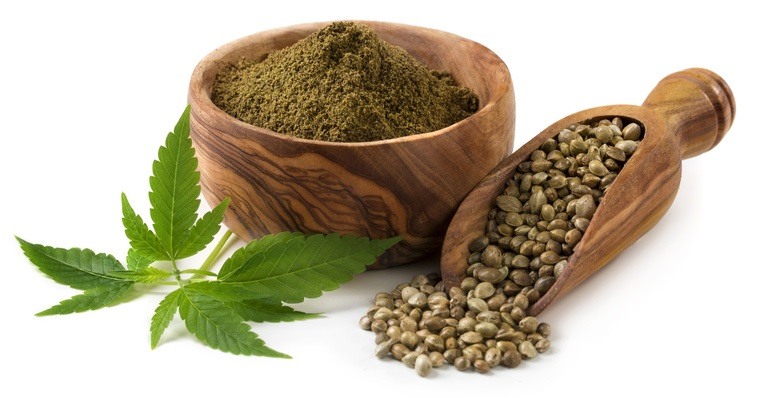
Moreover, more research is required to accurately determine the exact amino acid content of hemp proteins.
Despite this, hemp protein does have significant leverage over its soy counterpart:
- It is very easy to digest – generally, the human digests animal-based proteins faster and more efficiently compared to plant-based options. However, studies have shown that hemp protein is 91-98% digestible. This means you don’t have to work extra hard to focus on digesting hemp protein powder compared to soy protein. That said, some studies have found that heat can lower the digestibility of hemp proteins. So it’s a good practice to look for cold-pressed hemp protein to determine the quality and premium digestibility.
- High in fiber – for anyone who wants to lose weight, fat, and gain muscle, high fiber diets have shown increased and accelerated influences. Moreover, a high-fiber diet is also linked to overall health with studies showing that individuals who have diets that are high in fiber have better blood sugar levels, healthy gut bacteria, and face a lower risk of developing bowel cancer. It is very high in fiber. This helps you reach the daily fiber intake recommended by nutritionists, which often goes unmet.
- Unsaturated Fats – hemp protein powder is an excellent way of unsaturated fat. Unsaturated fats are well-known to improve overall heart health. Furthermore, hemp seeds are known to contain a 3:1 ratio of omega 6 to omega 3 fatty acids. This allows you to balance the typically unhealthy and unbalanced Western diet. Due to this fact, you should keep supplement inside the fridge to keep it from spoiling.
Here are some other benefits of hemp protein you’ll appreciate:
- Hemp protein powder is rich in minerals and essential antioxidants.
- It has less refined, earthy, nutty, or grassy flavors.
- It blends well with other drinks, especially in smoothies or shakes. However, if you plan to mix it in water, it could end up having a sandy texture.
- It is a viable addition as a source of protein. This is more true for athletes who need good protein for recovery.
Hemp Protein vs Whey
Hemp protein has long been part of the pet food industry, but a new study finds it may be a healthier option. Whey protein is touted as a healthy alternative to animal-derived products. However, the effects of this fat-soluble protein on the human body are less certain. Now a new study published in Scientific Reports, an online journal, finds that whey protein may be more harmful to the kidneys than you think.
The study found that whey protein intake is harmful to blood flow and a build-up of protein in the blood. Whey protein also causes a drop in calcium, which can lead to calcium deposits in the kidneys, according to Live Science. Whey protein may also contain minerals that could hurt the kidneys if consumed in large amounts, according to the new study. Researchers reported that animal studies have shown that at high doses, whey protein could have the potential to cause kidney failure.
Whey is a popular formula of protein. This is probably because it contains 24 grams of protein per serving, whereas hemp protein only contains about 14 grams of protein per serving. However, there are many reasons you might opt for hemp protein powder over whey.
One of the reasons may be dietary restrictions. You might be practicing a vegetarian or vegan lifestyle. Moreover, you might also consider hemp protein if you’re allergic to dairy products.
One of the reasons that make whey a popular plant-based alternative is the fact that, unlike other plant-based proteins, it’s relatively easy to digest.
Let’s take a side-by-side look at hemp vs whey following the reviews and scientists.
Fiber Content
When it comes to fiber content, it is a clear winner. While whey does contain around one gram of fiber per serving, hemp protein contains 5 grams of fiber per serving, on average.
Calcium Content
Calcium is an integral part of the human organism. Calcium is responsible for blood clotting, and your muscles contracting. This is also one of the micronutrients that your body cannot produce by itself.
While you might think whey contains artificial preservatives and more calcium than hemp, it actually contains very little to none. On the other hand, It contains about 40 milligrams of calcium per serving.
Magnesium
Hemp protein is rich in magnesium, which helps your nerves and muscles function properly. Hemp protein supplies at least 80 percent of your body’s daily magnesium requirement.
Taste
Whey and hemp protein are very distinctly different when it comes to taste and texture. On the one hand, hemp protein is somewhat of an acquired taste. It will often be horrible on its own but will taste great when mixed or blended with shakes or smoothies. Moreover, it tastes earthier and nuttier—some have even described it as somewhat grassy. On the other hand, it is creamier and milkier in flavor. It would taste akin to infant oatmeal. Overall, it would depend on your personal preference.
Summary: If you are unrestricted when it comes to diet, whey is a best protein overall. However, hemp protein does contain a variety of other micronutrients and minerals that you need. For one thing, it is rich in magnesium, calcium and fiber. As for taste, it depends on your personal preference. If you are looking for something milkier and creamier, it is the clear choice for you. However, if you want something a bit more nutty and earthy and versatile, it is a excellent choice.
What are the Benefits?
- Hemp protein powder is easier to digest compared to other plant-based protein sources.
- It is vegan and vegetarian-friendly. Moreover, it doesn’t contain dairy, so it is suitable for people who are lactose-intolerant.
- It is rich in omega 3 and omega 6, which is healthy for you.
- It is rich in fiber and amino acids.
- It strengthens your immune system.
- It is allergen-free
What Are the Side Effects of Hemp Protein?
While hemp protein is considered generally safe, some individuals may experience some mild side influences such as:
- Gas, bloating, or diarrhea as a result of overdosing on hemp protein because of the high fiber content.
- Those with allergies to hemp should avoid hemp protein powder.
Moreover, following the reviews and scientists, some animal studies suggest that hemp protein may not be safe for pregnant or nursing women and people who suffer from anemia. However, human studies have not been conducted to verify these claims.
Moreover, there is some controversy that surrounds protein powders since they come from the same plant family as marijuana. Studies have shown that hemp seeds contain very little THC or psychoactive compounds. This means that contrary to popular belief, taking hemp protein powder will not cause you to fail a urine test.
FAQ
Can Hemp Protein Powder Make You Fail a Drug Test?
Contrary to popular belief, hemp protein will not cause you to fail it. Although related to marijuana, hemp contains a very minimal trace amount of THC. Thus, you will not experience any of the psychoactive effects you might encounter with marijuana.
 Does Hemp Protein Contain CBD?
Does Hemp Protein Contain CBD?
No. It is derived from the seed of the hemp plant, which contains all of the necessary proteins and amino acids your body cannot produce. CBD, on the other hand, is found on the leaves or flowers of hemp products, so it is virtually impossible for you to intake it.
Is Hemp Protein Good for Weight Loss?
It is an ideal companion for people who are trying to lose weight because of many reasons:
- It is rich in fiber, which aids in digestion and losing weight itself.
- It helps you feel more full.
- These protein powders are an excellent meal substitute.
Is Hemp Protein Anti Inflammatory?
It’s good to have evidence, but how to apply that evidence to relevant weight loss factors depends largely on the type of medical condition the patient is treating. Inflammation. But is inflammation what is at the core of obesity? Yes, sometimes it is, and the authors of this article make the statement that Kegley and Tooker never claim to establish a causal relationship. Inflammation is also caused by disease, injury, or infection. In other words, it can be caused by a lack of medical care as well. I started thinking about it, ‘what would happen if we got a strain of hemp that didn’t cause inflammation?'” says Jennings.
While this sounds like the holy grail of protein-powder consumption, it’s not entirely straightforward to farm the right strain to be anti-inflammatory, says Jennings. For one, the human body does not absorb the anti-inflammatory chemical, cannabidiol (CBD). Instead, the body absorbs CBD and other cannabinoids into the bloodstream, where they can cross the blood-brain barrier and act on neurological centers to produce anti-inflammatory properties. Another challenge is that THC—or THC-like compounds—are also present in hemp plants. “If hemp does cause inflammation, you don’t want the entire plant because of the levels of cannabinoids, but you don’t want them isolated in a different species either,” says Jennings.
Can You Get High on Hemp Protein Powder?
Another superfood that’s making waves is hemp. Last year, the FDA approved two human clinical trials for cannabinoid-rich hemp seeds, sending the entire industry into a hype frenzy. Hemp seeds have been lauded for their antioxidant, anti-inflammatory, and anti-anxiety properties for centuries, which is why some sources suggest their protein counts can rival that of beef and even more protein-packed foods like milk and eggs.
So, it’s no surprise that the Hemp Industries Association commissioned a meta-analysis of all the research done on hemp and protein; the study concluded that hemp has more protein than any other plant or animal food or drink on the market. That might not sound like a big deal, but consider this: If you added these two hemp foods to a glass of milk, the dairy product would have more protein and calcium than any whole food.
Does Hemp Protein Make You Poop?
In general, hemp protein is thought to make you poop—not too often, but if you eat a ton of it, it might make you more likely to have diarrhea, especially if you also eat a ton of other fiber. This doesn’t mean hemp is a shitty source of protein, but it could make you more likely to have an upset stomach or stomach cramps if you eat too much of it. But hemp protein isn’t bad for your digestive tract, just like any other food source. Did You Know? People who are lactose intolerant are actually more likely to be gluten intolerant than those who aren’t.
Bonus on HYPE – Just Hemp Protein Powder
Hemp protein powder, derived from the hemp plant’s seeds, stands out as a notable plant-based protein source, lauded for its diverse nutritional profile and eco-friendly cultivation. Renowned for its rich concentration of essential nutrients, hemp protein is a complete protein, offering all nine essential amino acids vital for bodily functions.
One of its standout qualities is its digestibility. Hemp protein contains edestin and albumin, globular proteins easily broken down and assimilated by the body. This digestibility factor makes it an excellent option for individuals with sensitive digestive systems or those seeking a protein source that’s gentle on the stomach.
Beyond its impressive protein content, hemp protein is also rich in fiber, which supports digestive health and promotes a feeling of fullness, aiding in weight management. The fiber content, specifically both soluble and insoluble fibers, contributes to a healthy gut microbiome, supporting overall wellness.
Hemp protein’s nutritional profile doesn’t stop there. It’s a source of healthy fats, primarily omega-3 and omega-6 fatty acids, in an ideal ratio for human consumption. These essential fatty acids play a crucial role in various bodily functions, including cardiovascular health, brain function, and inflammation regulation.
Moreover, hemp protein is a powerhouse of micronutrients, boasting an array of vitamins and minerals, including magnesium, iron, zinc, and B vitamins. These nutrients support energy production, immune function, and overall well-being.
An added advantage of hemp protein lies in its sustainability. The hemp plant requires minimal water, no pesticides, and grows rapidly, making it an environmentally friendly protein source. Its cultivation leaves a low carbon footprint compared to many other crops, making it an appealing choice for eco-conscious consumers.
Taste-wise, hemp protein can have a slightly nutty and earthy flavor, which might not suit all palates. However, its taste can be easily masked or complemented with various ingredients in smoothies, baked goods, or other recipes.
In summary, hemp protein powder emerges as a nutritional powerhouse, offering a complete protein profile, fiber, healthy fats, and a range of essential vitamins and minerals. Its eco-friendly cultivation methods and digestibility further solidify its status as a top-tier plant-based protein option for health-conscious individuals seeking a sustainable dietary choice.
Which is Better Pea Protein or Hemp Protein?
Pea protein and hemp protein are two popular options for individuals seeking plant-based protein supplements. Both have unique nutritional profiles and potential benefits, making the choice between them dependent on various factors.
Pea protein is derived from yellow split peas and is primarily available as pea protein isolate, offering a high concentration of protein. On the other hand, hemp protein is sourced from hemp hearts, the seeds of the cannabis plant, known for their nutritional density.
Pea protein isolate stands out for its excellent digestibility and amino acid profile, particularly rich in essential amino acids like leucine, vital for muscle repair and growth. It’s often favored by individuals aiming to build muscle or meet higher protein needs.
Hemp protein, while also containing all essential amino acids, provides additional benefits such as omega-3 fatty acids and fiber. It contributes to heart health, inflammation regulation, and digestive well-being.
In terms of protein quality, pea protein isolate typically scores higher due to its superior digestibility and amino acid composition. Pea protein is considered an excellent source of protein, with a Digestible Indispensable Amino Acid Score (DIAAS) of 100, indicating its high quality.
Although hemp protein is technically a complete protein, its DIAAS score averages below 60, potentially impacting its effectiveness for muscle building compared to pea protein. However, hemp protein offers other nutritional advantages, such as its omega-3 content and fiber.
When choosing between pea protein and hemp protein, individuals should consider their specific dietary preferences, nutritional needs, and goals. Pea protein may be preferable for those focused on muscle building, while hemp protein could be favored for its additional nutrients and potential health benefits.
Ultimately, both pea protein and hemp protein can serve as valuable additions to a plant-based diet, offering convenient and effective sources of protein to support overall health and wellness.
Is Hemp Protein Safe for Kidneys?
Hemp protein, derived from the seeds of the Cannabis sativa plant, has garnered attention for its nutritional benefits. However, for individuals concerned about kidney health, it is essential to understand the potential impacts of hemp protein on renal function.
Nutritional Profile and Benefits:
Hemp protein is a complete protein, meaning it contains all nine essential amino acids required by the human body. It is rich in omega-3 and omega-6 fatty acids, fiber, vitamins, and minerals. These components contribute to its reputation as a superfood, promoting overall health, muscle repair, and cardiovascular well-being.
Impact on Kidney Health:
Kidney function is crucial for filtering waste products and excess substances from the blood. High protein intake can strain the kidneys, particularly in individuals with pre-existing kidney conditions. However, the type and source of protein play significant roles in determining its impact on renal health.
Plant-Based Proteins vs. Animal-Based Proteins:
Studies indicate that plant-based proteins, including hemp protein, are generally easier on the kidneys compared to animal-based proteins. This is attributed to lower levels of phosphorus and the absence of harmful compounds found in some animal proteins. Plant-based proteins are also associated with a lower risk of chronic kidney disease (CKD) progression.
Scientific Evidence:
Research on hemp protein specifically and kidney health is limited. However, general studies on plant-based proteins suggest potential benefits. A 2019 study published in the Journal of Renal Nutrition found that plant-based diets could slow CKD progression. Another study in the American Journal of Kidney Diseases (2018) suggested that plant proteins might reduce kidney disease risk factors.
Practical Considerations:
For individuals with healthy kidneys, moderate consumption of hemp protein is unlikely to cause harm and can be a nutritious addition to the diet. For those with kidney
Final Words
In general, hemp protein powder is a good extra source of protein for any individual. It may not contain as much protein as its soy or pea counterparts or even whey, but it does come with more health benefits than other protein sources.
To start with, it is rich in fiber, calcium, and magnesium. These are all the essential nutrients that your body needs. These nutrients aid in weight loss results, muscle recovery and muscle building, heart functions, and many others.
Moreover, it is also proven to be more digestible compared to its soy counterpart. Whereas plant-based proteins usually take longer for our bodies to digest, it is 91-98% digestible, making it an ideal alternative to hemp if you have dietary restrictions.
.
Despite hemp protein not having a lot of protein content, it is rich in many other micronutrients and benefits. If you ask me, it performs its duties as a supplement fairly well. After all, protein powders are meant to aid you and your body in the production of micronutrients you get from food.
Overall, I found that the Sunfood Superfoods Raw Organic is the best option. It is cold-pressed, which means it retains its maximum digestivity, and it contains 50% protein by weight. It is also CCOF certified organic and is Non-GMO, so you know you’re only putting healthy, organic, and unprocessed hemp protein into your body.
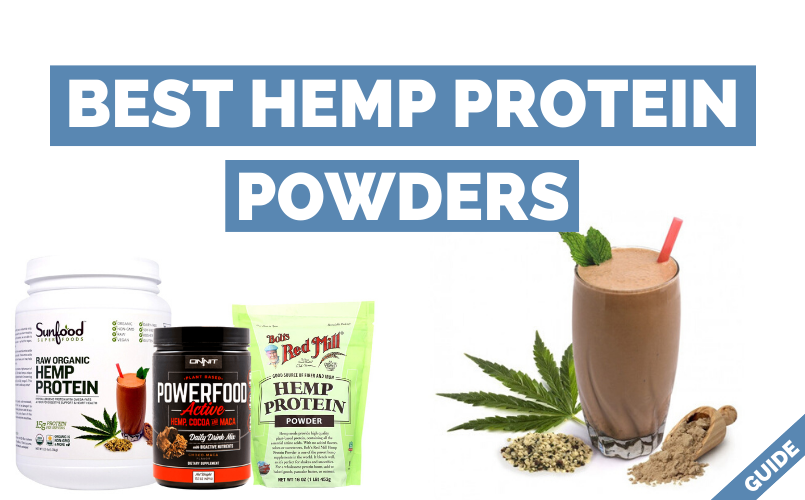
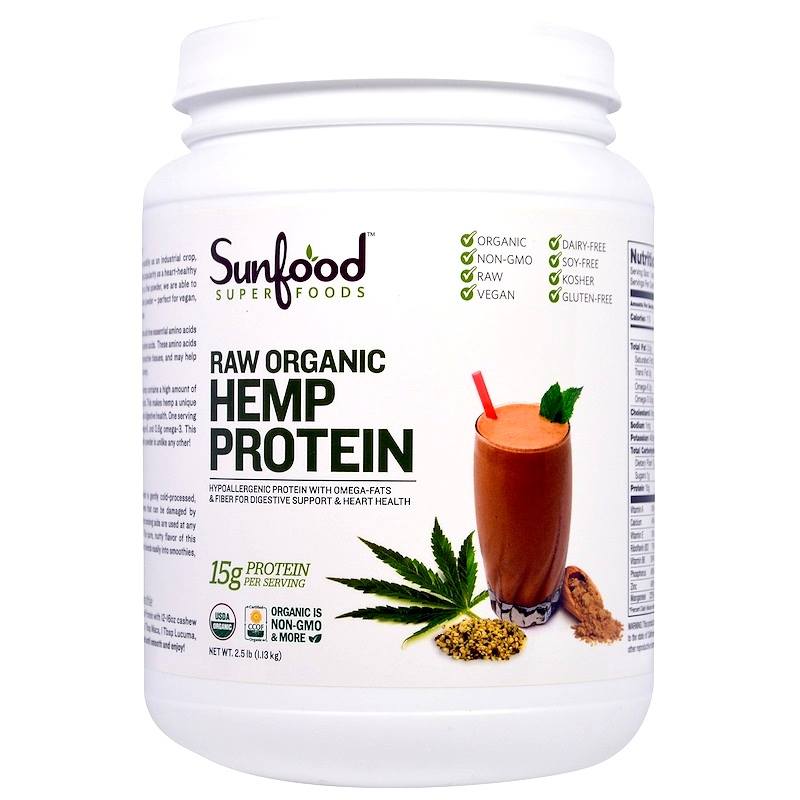
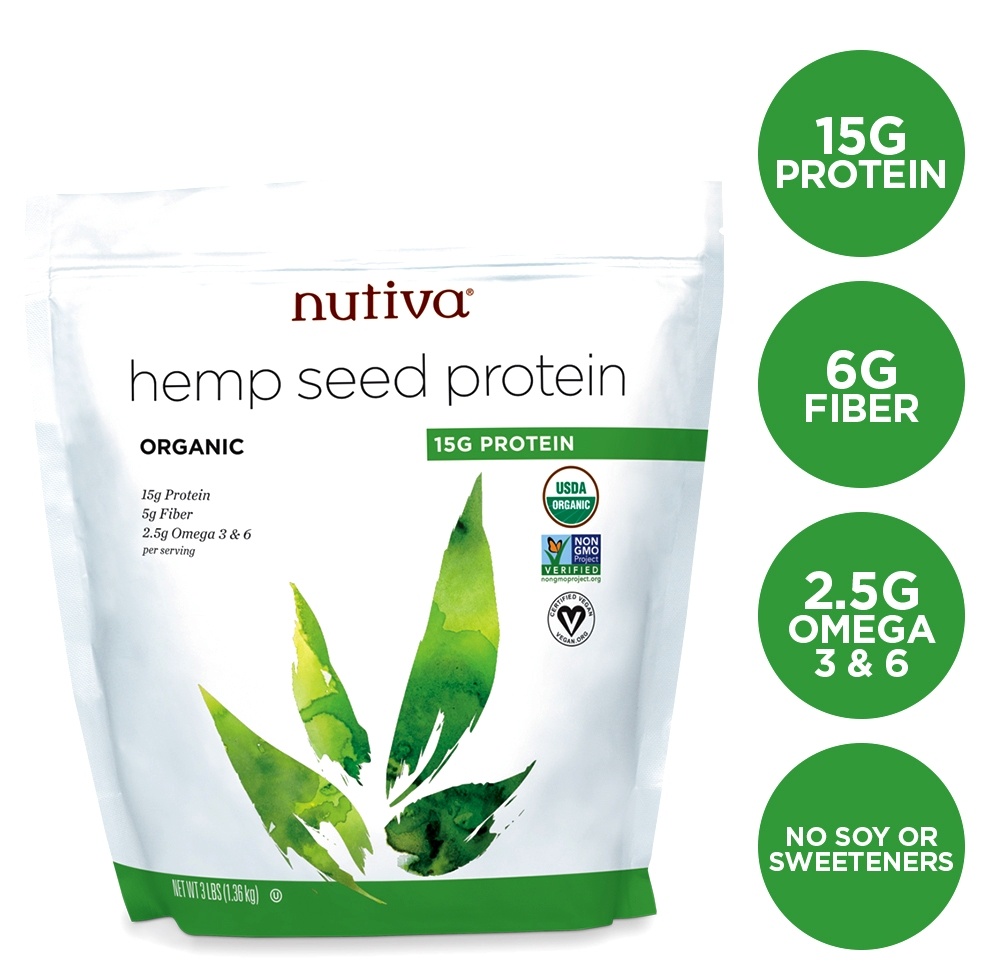
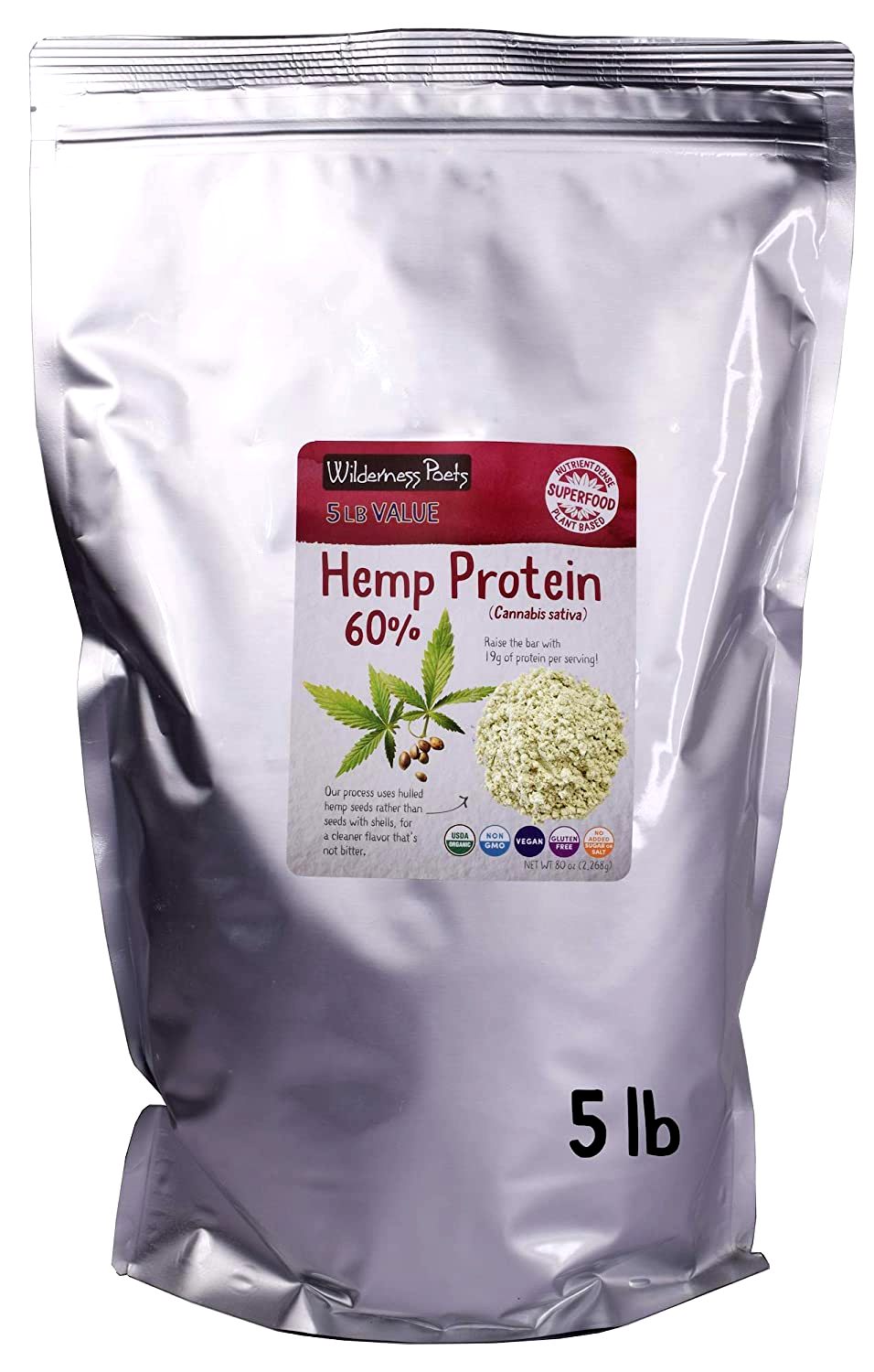
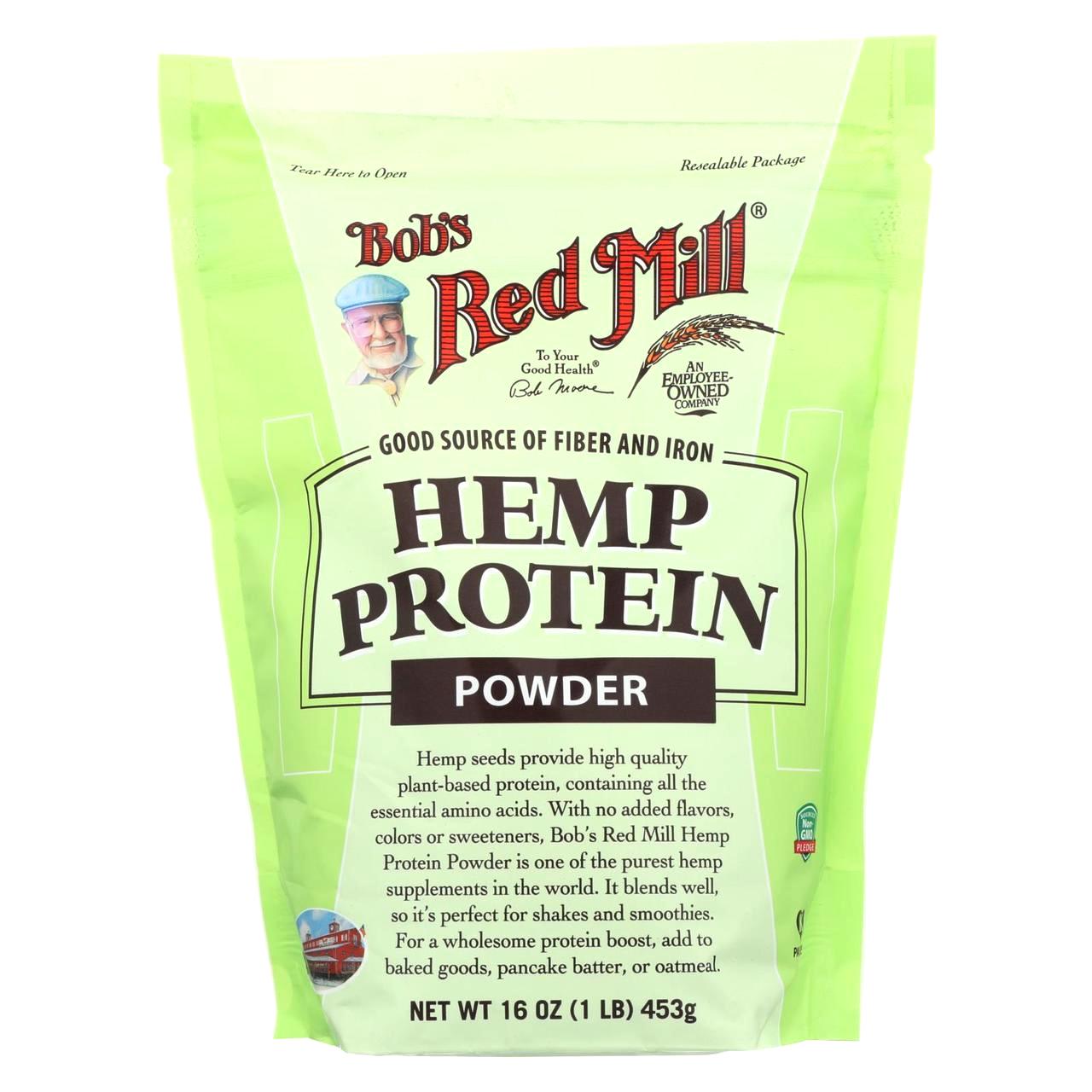
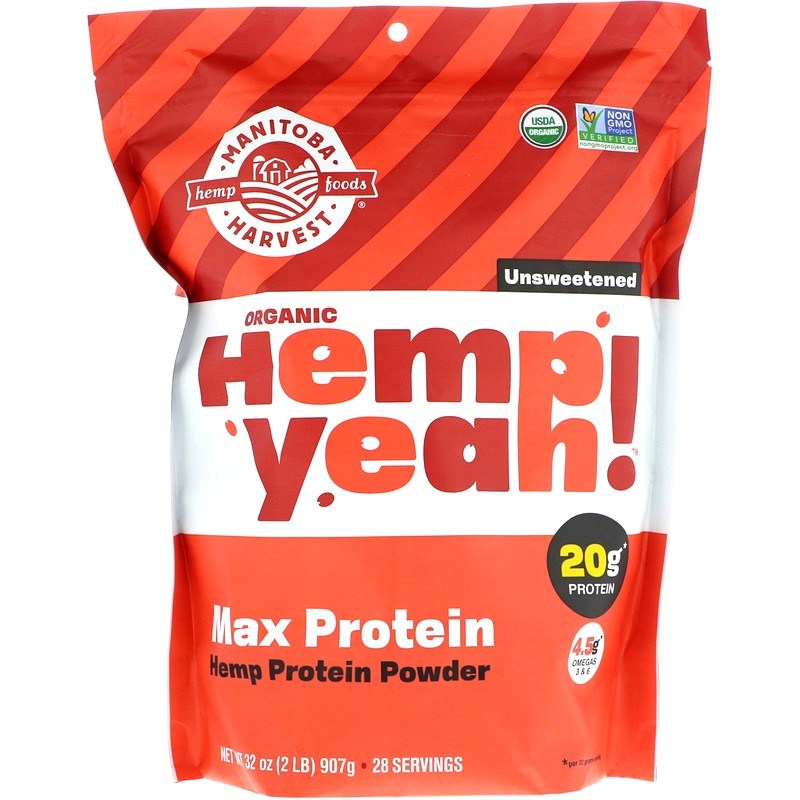
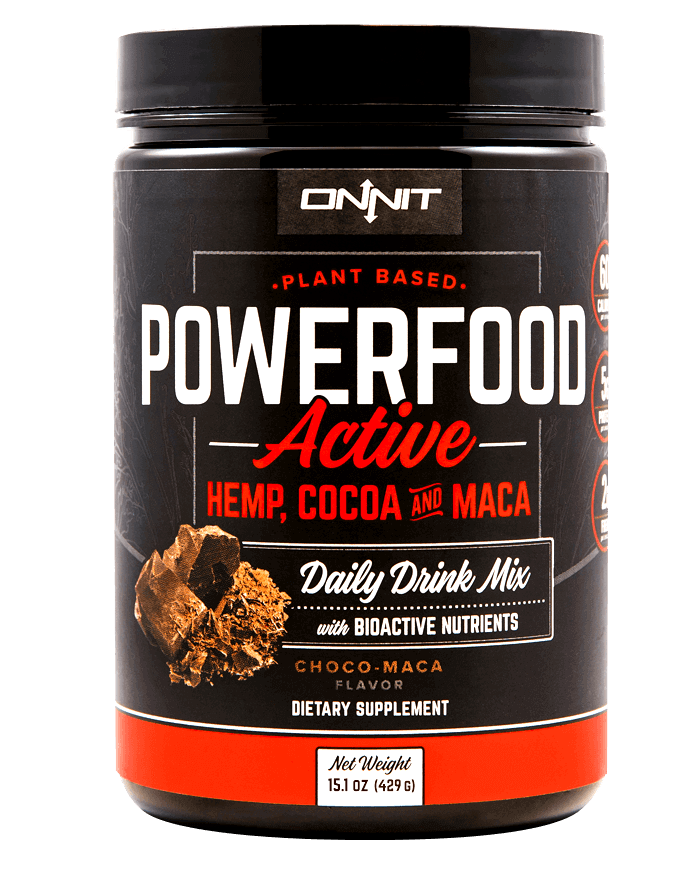
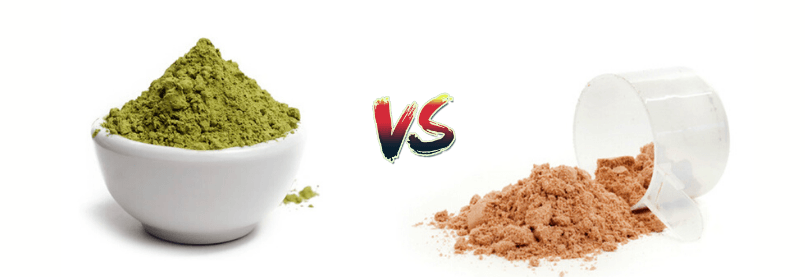
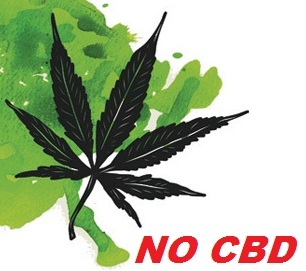 Does Hemp Protein Contain CBD?
Does Hemp Protein Contain CBD?